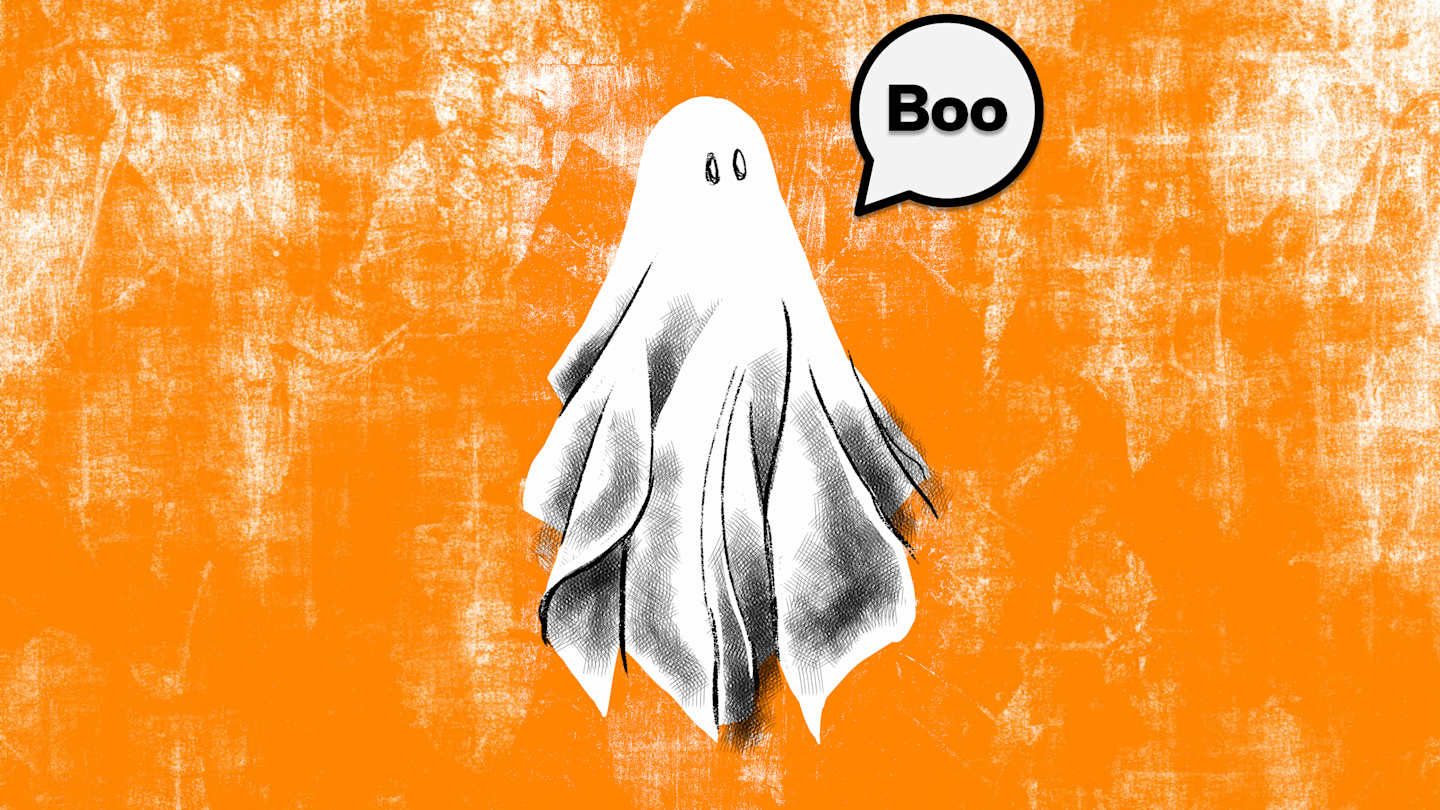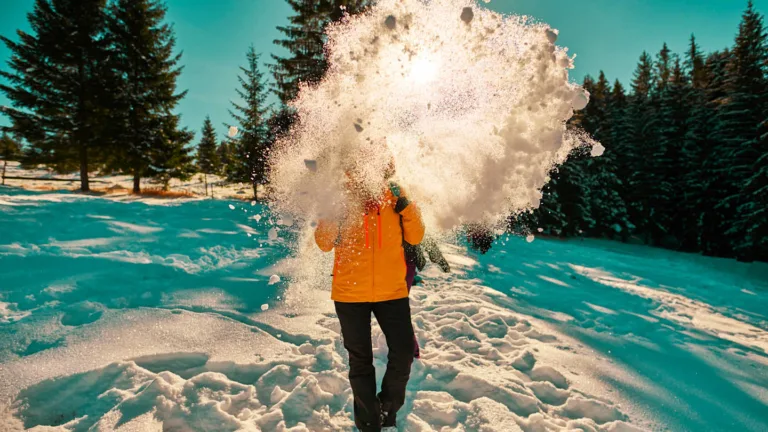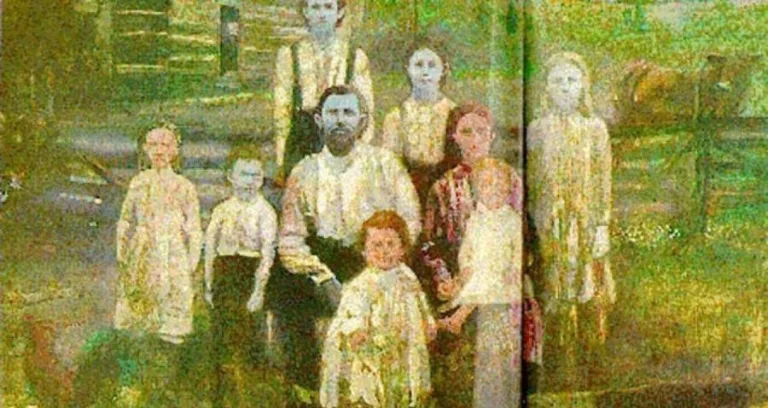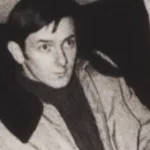Have you ever wondered why ghosts are always saying “boo?” It’s become such a classic spooky sound that it’s practically synonymous with Halloween and all Things Paranormal. But did you know that this iconic phrase has a surprisingly long and fascinating history?
It turns out, the word “boo” wasn’t always associated with fear and frights. Back in the mid-16th century, it had a completely different meaning! It was used more like an Exclamation To Assert One’s Presence Rather Than Scare Someone. Think of it like a playful way of saying “here I am!” This is evident in old Scottish Proverbs Where “boo” was used similarly.
However, Over Time, the sound of “boo” started to evoke feelings of surprise and fear, Probably Because It Sounds So startling! By the 18th century, Words Like “bu-kow”, “bogeyman,” and “bu-man” emerged in Scotland, describing scary creatures that haunted the night. This shift in meaning solidified the Connection Between “boo” and ghosts by the early 19th century. People began associating the sound with the supernatural, and it eventually became the go-to greeting for Ghosts Saying Boo.
The Early Meaning of “Boo”
Before “boo” became the spooky greeting we know today, it had a much different meaning – Think More Playful Than frightening!
Picture yourself back in the mid-16th century. People used “boo” as an exclamation to simply assert Their Presence. It was like saying “here I am!” You can even see this reflected in old Scottish proverbs where “boo” was used in a similar way. For example, the proverb “He can’t say bo to a goose” implies someone is too timid or powerless to even utter a simple “boo.”
This shows us that “boo” wasn’t initially intended to scare anyone. It was simply a way of letting people know they were around. Can you imagine how surprising it would be for those early users of “boo” to hear their playful exclamation become the iconic sound of ghosts saying boo?
From Presence to Fear: A Shifting Lexicon
So how did “boo” go from a simple exclamation to the epitome of spooky? Well, language is constantly evolving, and sometimes words take on new Meanings As Our Perceptions Shift. This happened with “boo,” too.
Around the 18th century, the sound of “boo” started to evoke feelings of surprise and fear. It probably had something to do with its phonetic similarity to a Startling Sound – a quick, sharp “boo!” is sure to get your attention! This association with fear became even Stronger When Words Like “bu-kow,” “bogeyman,” and “bu-man” appeared in Scotland, describing scary creatures that lurked in the shadows.
These terms all shared that chilling “boo” sound, further cementing its link with the supernatural. By the early 19th century, ghosts saying boo had become a firmly established idea in popular culture.
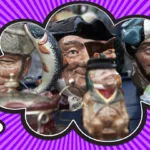 Mug Means Face: The Origins of Mug as Slang
Mug Means Face: The Origins of Mug as SlangBoogeymen and the Rise of Supernatural Associations
The 18th century saw a surge in stories and folklore about terrifying creatures haunting the night – these were often referred to as “bogeymen.” These menacing figures embodied our primal fears of the unknown and darkness.
Words like “bu-kow,” “bogeyman,” and “bu-man” emerged, all echoing that chilling “boo” sound. They quickly became synonymous with fear and superstition, further entrenching the association between “boo” and the supernatural. These tales weren’T Just Harmless Fun; They Reflected People’s anxieties about a world beyond their control.
As these stories spread, the image of a ghost Saying Boo solidified in our collective imagination. The sound became a tangible representation of fear, a warning that something unseen and Perhaps Malevolent Lurked Nearby.
Spiritualism and the Ghostly Connection
The mid-1800s saw the rise of spiritualism, a movement that sought to communicate with the dead. People became fascinated with séances and attempts to contact spirits, eager to bridge the gap between the living and the departed.
This fascination with the afterlife further strengthened the link between “boo” and ghosts. If communicating with spirits was possible, then surely ghosts had a way of letting us know they were there – and what better way than with a ghostly “boo!” Spiritualism provided a platform for these Ideas To Flourish, solidifying the connection between ghosts and the chilling sound that became their Signature Greeting.
People began to imagine ghosts as spectral figures who might appear at séances or whisper warnings through the veil. The Ghost Saying Boo became a symbol of this connection – a tangible manifestation of the supernatural World Trying To Reach Out.
A Spooky Greeting Across Cultures
The popularity of “boo” as a ghostly greeting wasn’t confined to just one culture. It seems the universal understanding that ghosts might communicate with us in spooky ways resonated across different societies.
Think about Halloween traditions around the world – Many Involve Costumes, Eerie Decorations, and playful scares. These celebrations often feature the sound of someone yelling “boo!” as a harmless way to play on our fear of the unknown. It’s fascinating how a simple exclamation like “boo” has become a shared symbol for Ghostly Encounters Across Cultures.
Perhaps it’s because that short, sharp sound perfectly captures the essence of surprise and unease – emotions we associate with encountering something mysterious or supernatural. No matter where you are, ghosts saying boo remains a timeless element of spooky fun.
More for curious minds
Unlock extra content and exclusive deals tailored to your interests.

